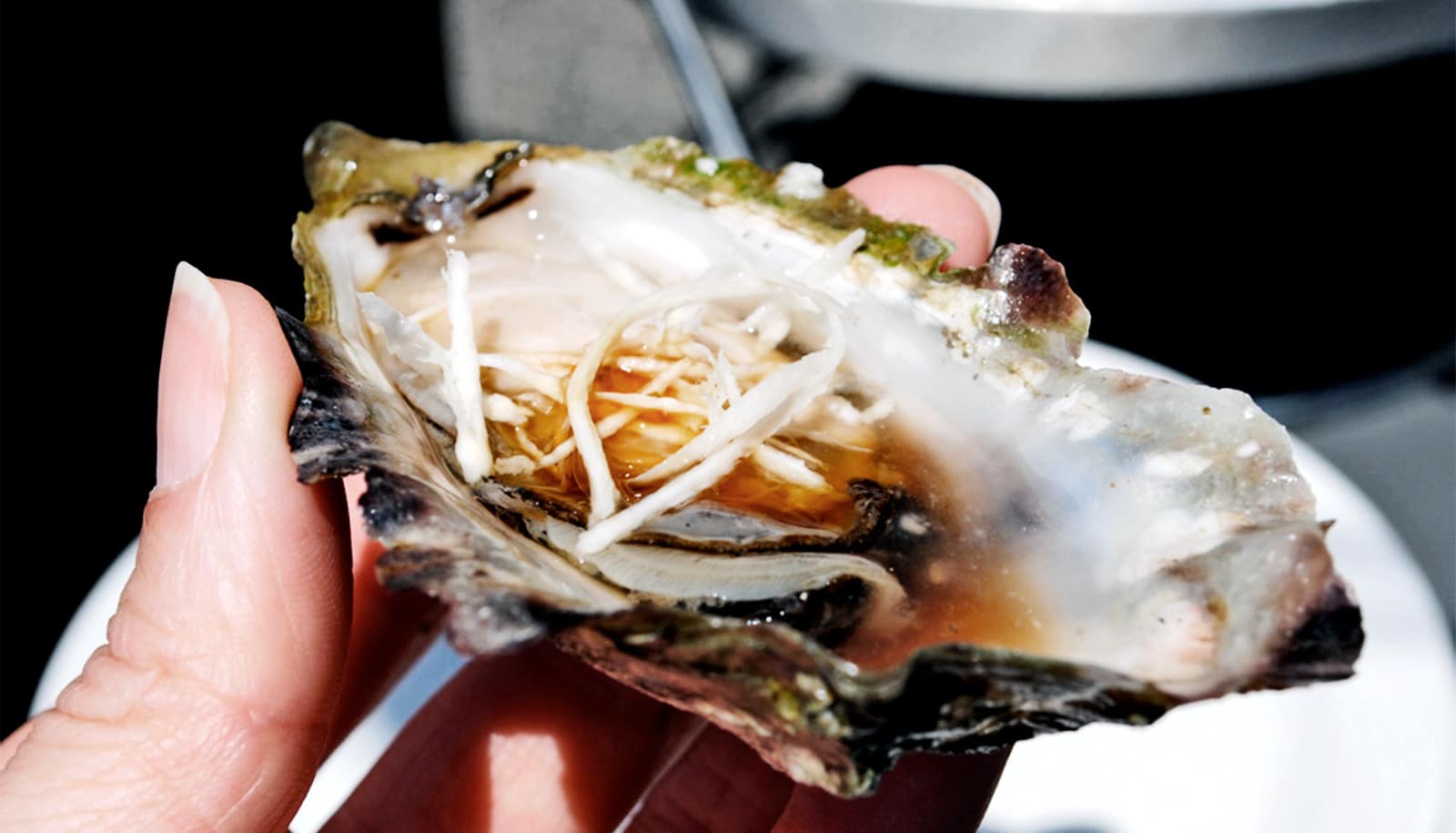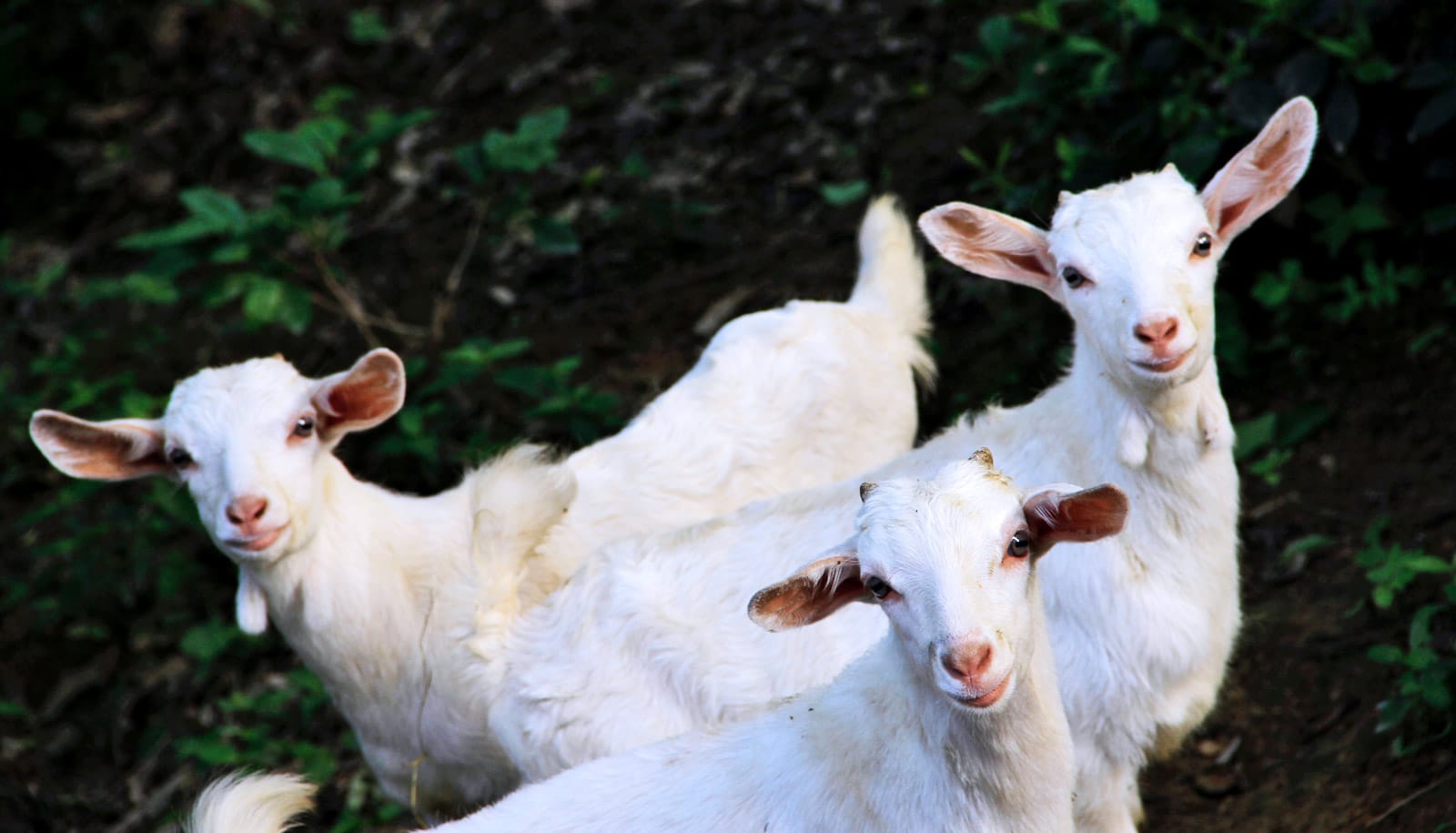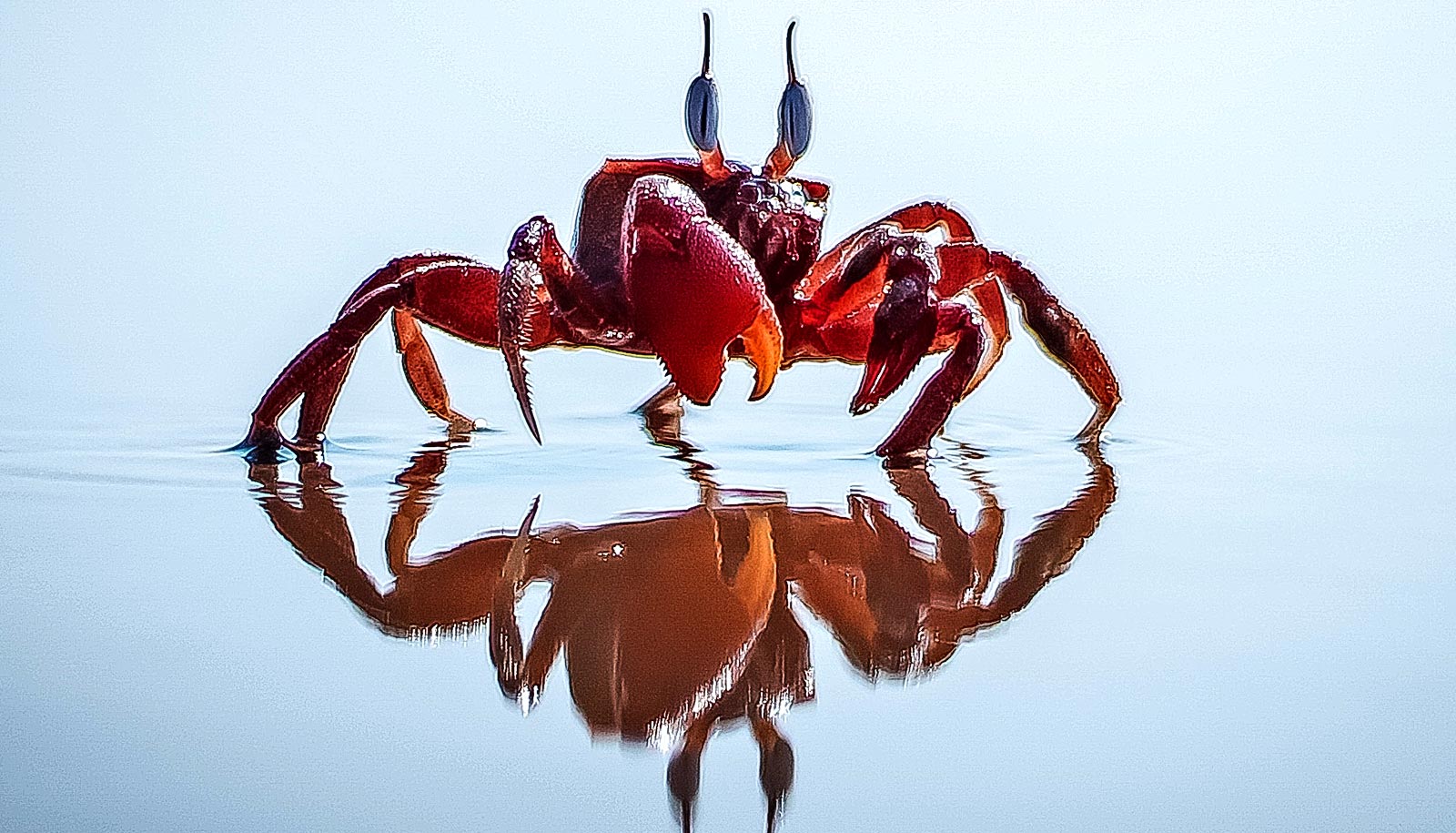The adage about only eating oysters in months with an “R” in the name goes back at least 4,000 years, research shows.
An analysis of a large shell ring off Georgia’s coast reveals that the ancient inhabitants of St. Catherines Island limited their oyster harvest to the non-summer months.
How do scientists know when islanders were collecting oysters? They measure parasitic snails.
Snails known as impressed odostomes, Boonea impressa, are common parasites of oysters, latching onto a shell and inserting a stylus to slurp the soft insides. Because the snail has a predictable 12-month life cycle, its length at death offers a reliable estimate of when the oyster host died. This allowed researchers to use it as a tiny seasonal clock for when people collected and ate oysters in the past.
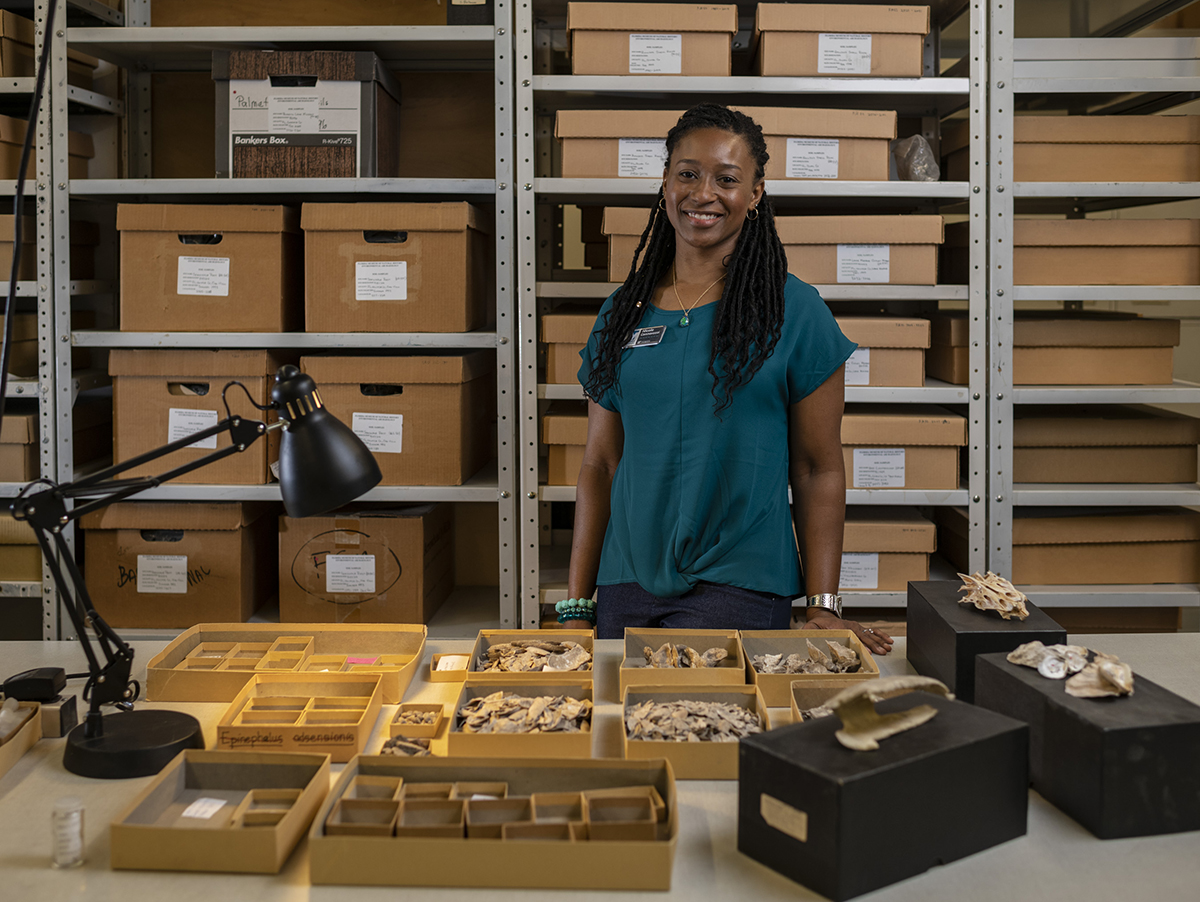
Snail stowaways
Stowaways on discarded oyster shells, the snails offer new insights into an old question about the shell rings that dot the coasts of Florida, Georgia, South Carolina, and Mississippi.
“People have been debating the purpose of these shell rings for a very long time,” says Nicole Cannarozzi, collection manager of environmental archaeology at the Florida Museum of Natural History at the University of Florida and lead author of the paper, published in PLOS ONE.
“Were they everyday food waste heaps? Temporary communal feasting sites? Or perhaps a combination? Understanding the seasonality of the rings sheds new light on their function.”
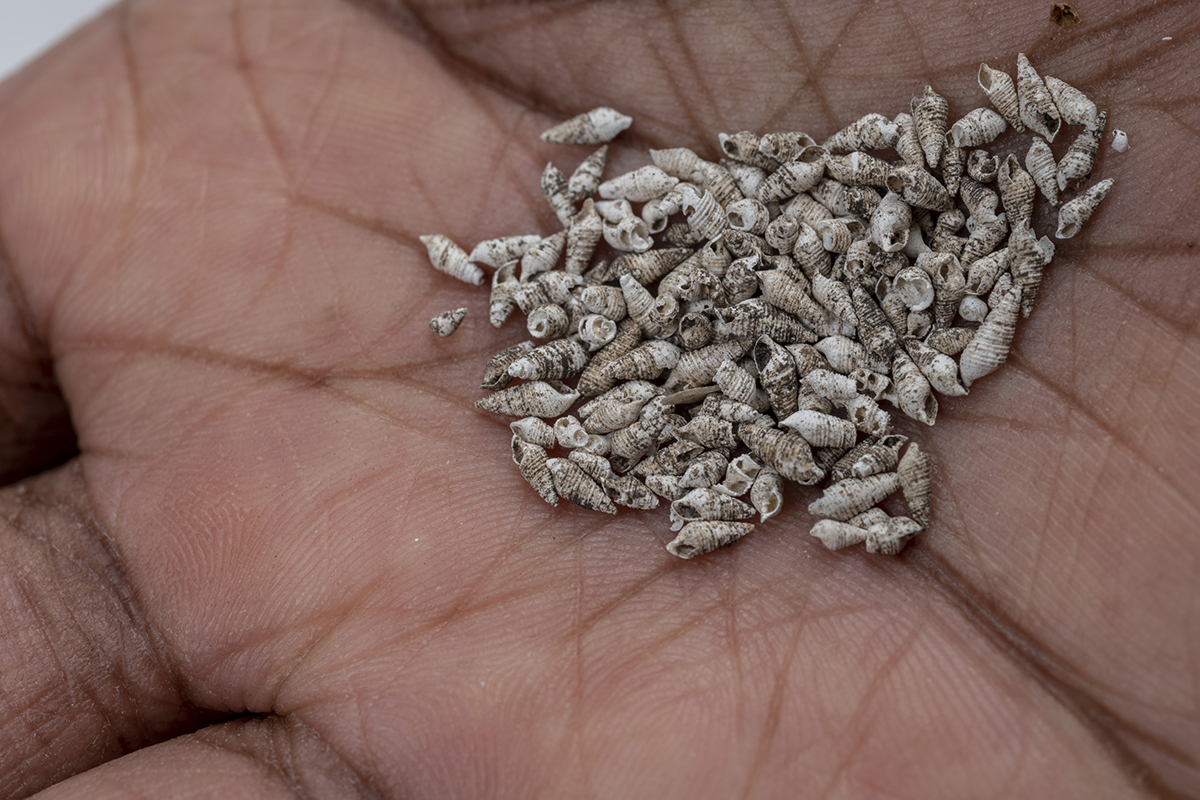
Cannarozzi and coauthor Michal Kowalewski, chair of invertebrate paleontology, analyzed oysters and snails from a 230-foot-wide, 4,300-year-old shell ring on St. Catherines Island and compared them with live oysters and snails.
They found that island inhabitants were primarily harvesting oysters during late fall, winter, and spring, which also suggested the presence of people on the island tapered off during the summer.
Oyster harvest
The seasonality of the shell ring may be one of the earliest records of sustainable harvesting, Cannarozzi says. Oysters in the Southeast spawn from May to October, and avoiding oyster collection in the summer may help replenish their numbers.
“It’s important to look at how oysters have lived in their environment over time, especially because they are on the decline worldwide,” she says. “This type of data can give us good information about their ecology, how other organisms interact with them, the health of oyster populations, and, on a grander scale, the health of coastal ecosystems.”
Using impressed odostomes to gauge what time of year oysters were harvested offers an independent way to assess ancient patterns of oyster gathering, Cannarozzi says. This approach can complement other archaeological methods, including stable isotope analysis and examining shell growth rings.
Kowalewski says researchers could apply the method to other marine invertebrate studies if the “timepiece” organism’s life cycle meets several key requirements.
“If you have species with a lifespan of one year or less, consistent growth patterns and predictable spawning behavior, you could potentially use them as clocks as well,” he says. “We might be able to use this type of strategy to reconstruct population dynamics or the natural history of various species, especially those that are extinct.”
“People have affected the distributions, life cycles, and numbers of organisms over time,” Cannarozzi says. “Understanding how people in the past interacted with and influenced their environment can inform our conservation efforts today.”
Source: University of Florida
